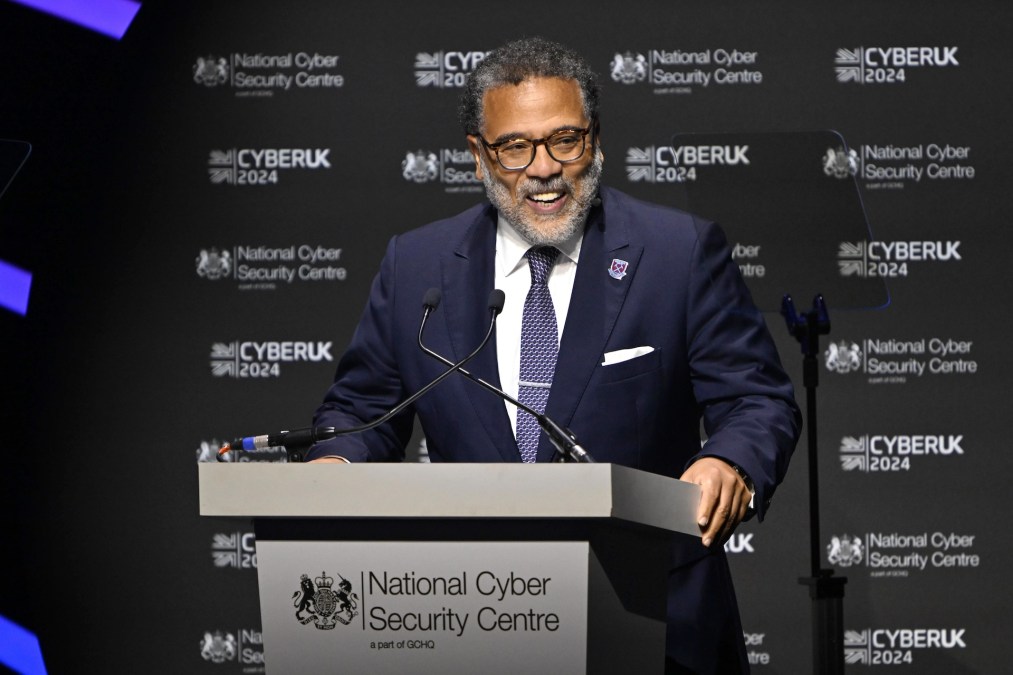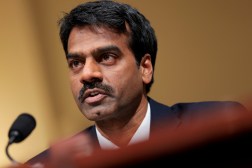Coker’s top priorities: Federal cohesion, cyber workforce, other ‘hard problems’

National Cyber Director Harry Coker said one of his top goals is to push “federal coherence” — collaborating with and uniting other parts of the federal government, and serving in a role that didn’t exist before Congress created his office more than three years ago and the Biden administration built it up into an approximately 80-person organization.
In an interview with CyberScoop this week that touched on the cyber workforce, the biggest unsolved problems in cybersecurity and more, Coker touted his office’s work within the federal government and outside it.
“We lead by collaboration,” Coker said. “We don’t have to be first in line or at the top of the list, as long as we’re working together to push in the right direction.”
Coker assumed office almost exactly seven months ago, inheriting the role of the second-ever Senate-confirmed national cyber director from Chris Inglis. The departure of Inglis came amid reported acrimony between himself, Anne Neuberger, deputy national security adviser for cyber, and Jen Easterly, the head of the Cybersecurity and Infrastructure Security Agency.
Stepping into that trio, Coker said he is “confident — which is better than comfortable — that we are doing well.” Coker wasn’t in the administration before to say how well the relationships were going at the time, he said, but he has weekly conversations with Neuberger.
“Anne and I go back years. We are friendly. We are respectful and professionals,” Coker said. “That does not imply we agree about everything. But it does imply that we can talk about everything, just give and take. Frankly, I think we both appreciate that.”
He likewise has weekly meetings with Easterly, and the staff of all three organizations talk constantly. “We talk regularly, we talk about challenging issues,” Coker said. “I have no doubt we’re all moving together in the same direction.” The nature of those relationships is “almost always the elephant in the room” when Coker meets with partners in the cybersecurity fight, he said.
That collaboration extends to other agencies, too, such as when the Office of the National Cyber Director teamed with the Office of Management and Budget to outline cyber priorities for the federal government for the fiscal year 2026 budget. The reception from agencies, Coker said, suggested that they appreciated the offices’ work on the budget process.
Coker’s office also turns frequently to the National Institute of Standards and Technology for expertise on topics like promoting memory-safe computer languages.
“That’s one of the things I like about this office,” Coker said. “We recognize the core competencies of our mission partners that we leverage. NIST has got the technical capabilities, depth and breadth, that frankly most other agencies don’t have. So we work with them.”
That collaboration also stretches into the private sector. One unique approach the Biden administration has brought to cyber, Coker said, is increasing the emphasis on economic prosperity as an aspect of cybersecurity and national security.
A frequent focus for Coker is fostering cybersecurity skills and boosting the cybersecurity workforce. It’s one of his near-term priorities, he said: “Knocking down, closing that gap on the cyber workforce.
“We’re not competing with the private sector” on hiring the cyber workforce, he said. “We are complementing each other. … There’s nothing wrong — there’s actually something good — about people leaving government service and going back and forth. Neither side has the best answers in every area.” It’s an approach he said that he didn’t see during earlier government stints, where length of service in government equated to usefulness. Coker was a Navy officer and official at the Central Intelligence Agency and National Security Agency.
The most important cyber skills, according to Coker, are critical thinking, agility and the ability to resist becoming complacent. “Our adversaries are as creative as they come,” he said. “When I was a young person in uniform, we didn’t have adversaries that are as capable as our adversaries are today.”
Coker doesn’t believe that a major in science, technology, engineering and math are necessary to make contributions in the cyber field. As artificial intelligence grows as a force in the cyber field, they will become even less necessary, he predicted. Coker’s office has been one federal government organization pushing to do away with college degrees as a requirement for certain agency and federal contracting jobs.
Another near-term priority is to provide greater support to state, local, tribal and territorial governments, Coker said. “That’s a national challenge,” he said. “These are entities that need additional resources. State, local tribal and territorial entities are going up against nation states.
“When I was growing up, we took care of nation-state threats,” Coker said, referring to the federal government taking on those threats. “Right now, those nation-state threats as well as malicious cyber actors are going after our water supplies in small towns. … How do we help them? There’s some challenging resource scenarios where we don’t have the answer.”
Overall, Coker has one kind of target. “I love hard problems, our office loves hard problems and we’re taking on hard problems,” he said. “They’re not going to end. But that’s OK, as long as we’re making progress.”






